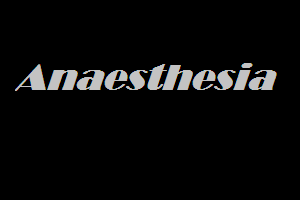- Home
- Editorial
- News
- Practice Guidelines
- Anesthesiology Guidelines
- Cancer Guidelines
- Cardiac Sciences Guidelines
- Critical Care Guidelines
- Dentistry Guidelines
- Dermatology Guidelines
- Diabetes and Endo Guidelines
- Diagnostics Guidelines
- ENT Guidelines
- Featured Practice Guidelines
- Gastroenterology Guidelines
- Geriatrics Guidelines
- Medicine Guidelines
- Nephrology Guidelines
- Neurosciences Guidelines
- Obs and Gynae Guidelines
- Ophthalmology Guidelines
- Orthopaedics Guidelines
- Paediatrics Guidelines
- Psychiatry Guidelines
- Pulmonology Guidelines
- Radiology Guidelines
- Surgery Guidelines
- Urology Guidelines
OSA patients experience more Perioperative complications in maxillofacial surgery

Patients with sleeping disorders, such as obstructive sleep apnea (OSA) undergoing elective maxillofacial surgery may experience a high number of comorbidities in the postoperative period, according to a new study published in the Journal of Cranio-Maxillo-Facial Surgery.
Evgeny Goloborodko, Department of Oral, Maxillofacial and Facial Plastic Surgery, University Hospital RWTH Aachen, Aachen, Germany, and colleagues conducted the study to detect specific complications resulting from oral and maxillofacial surgery.
Read Also: Doctors conduct Submental Intubation in maxillofacial trauma to save life
For the study, the researchers retrospectively analyzed sixty-nine cases of patients with middle or severe sleep apnea who underwent an operation under general anesthesia in the oral and maxillofacial region. This group was then compared with an age and diagnosis matched group without sleep apnea receiving the same operative treatment.
Key Findings:
- There was a significant difference between the two groups concerning body mass index, the ASA-Index, the Cormack-Mallampati Index, the number of pre-existing conditions, and home medication (p < 0.05).
- Concerning the length of stay, overrun of an estimated mean length of stay, and the number of surgical complications and hypertonic events, no difference could be detected.
- Almost 28% of the patients with OSA in our study suffered a substantial respiratory complication even under intensive care observation.
- The number of patients with oxygen desaturation was 9% in the control group, which differed significantly (p = 0.0093) from the number of such patients in the OSA group.
"In this study, we have shown that the presence of OSA in patients undergoing elective maxillofacial surgery is associated with a considerable number of comorbidities in the postoperative period. Through preoperative OSA screening and OSA evaluation, an improvement in the management of surveillance resources could be achieved and the OSA-specific risk could be assessed more precisely and also reduced, concluded the authors.

Disclaimer: This site is primarily intended for healthcare professionals. Any content/information on this website does not replace the advice of medical and/or health professionals and should not be construed as medical/diagnostic advice/endorsement or prescription. Use of this site is subject to our terms of use, privacy policy, advertisement policy. © 2020 Minerva Medical Treatment Pvt Ltd